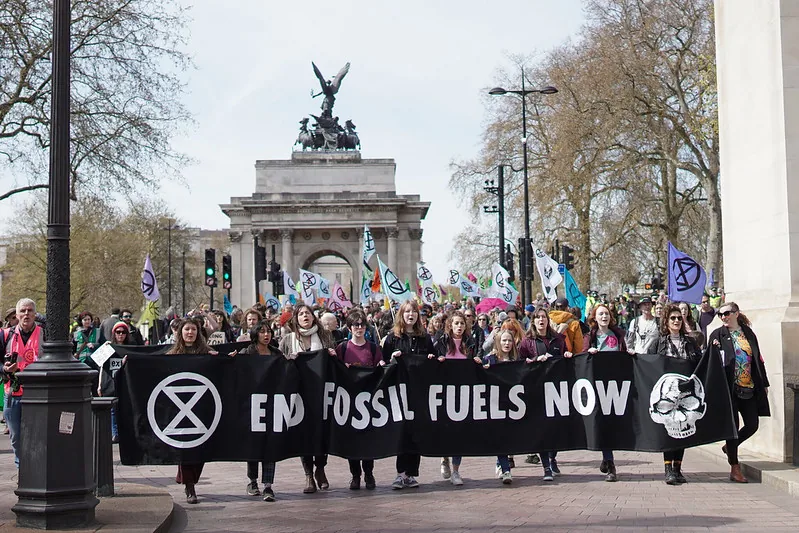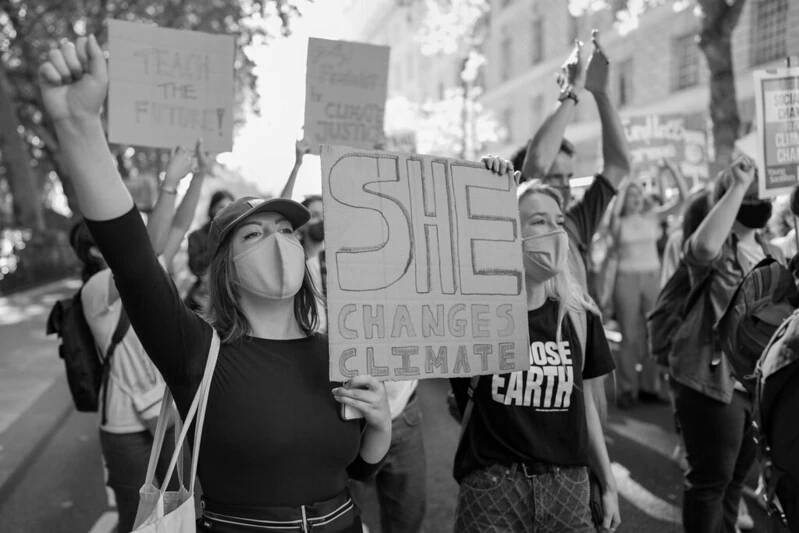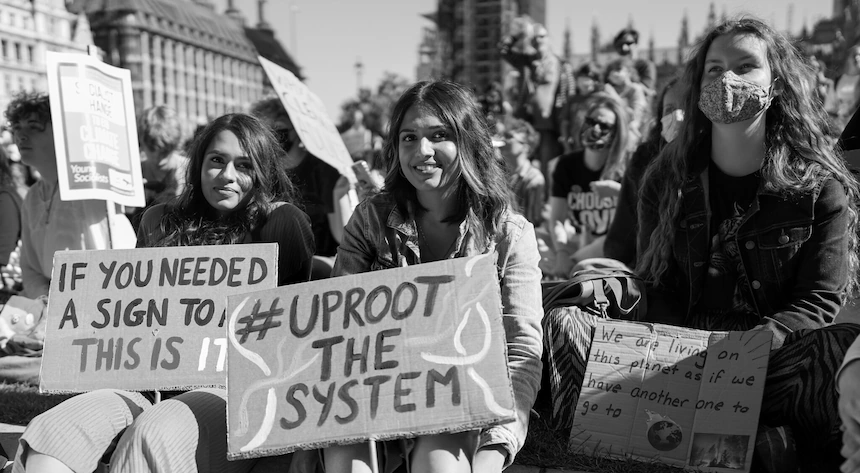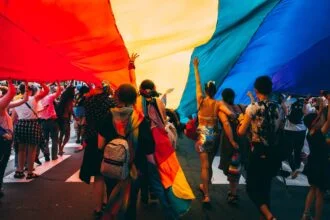This essay examines the rhetoric and politics of human rights through a feminist lens. It examines the ways in which the stigma of vulnerability has been used to alienate women from their humanity. It details the strategies that transformed the meaning of vulnerability from a liability to a sign of dignity. This transformation entailed debunking the ideology of the autonomous individual and recognizing that, as tethered to each other, we are morally obliged to see ourselves as guardians of each other’s vulnerabilities.
Living in an age that some have called the Anthropocene, issues of human rights increasingly intersect with species and environmental rights, as our exploitation of their vulnerabilities threatens not only their existence but ours as well. This fact brings renewed attention to the idea of rights and of who counts as deserving them. Now, it is not only a matter of defusing the threat that we pose to each other but of ameliorating the damage we have inflicted on other species and the planet.
The right to the pursuit of happiness provides criteria for distinguishing cultural norms that can be validated from those that cannot.
Taking up this responsibility through the rhetoric and politics of rights is a twofold project. One, it resets the issue of human rights to address the ways in which such environmental issues as climate change and pollution impact some human communities more than others. Two, it directs us to affirm our humanity by validating the worth of the other-than-human species with whom we share the earth.
The Right to Have Rights
The language of human rights seems clear. They are our birthright. The history of human rights tells a different story. Here, being designated as human is not a birthright but rather a privilege that can be granted or denied. Yes, all human beings have human rights, but no, being born human is insufficient evidence of your humanity. Depending on the time and place, certain characteristics will define you as human, while others will exclude you.
Women, victims of the myth of autonomy used human rights ideas to debunk it.
The authors of the American Declaration of Independence declared that all men were created equal and equally entitled to the rights of man. Their slaves, designated as property, were not, it was said, created human enough for rights.
Further, when these authors spoke of the rights of man, they meant what they said. Women, depicted as lacking the characteristics that defined one as fully human—autonomy, rationality, invulnerability—were not included among those who had the right to have rights.
The story of African Americans’ struggles for their right to be counted as fully human is unique to the history of the United States. The story of women’s demands for equality crosses national borders. It affirms the universal promise of the right of all human beings to be counted as human by critiquing patriarchal ideologies of autonomy that, in their multiple iterations, share this: being born a woman is degrading. Defined as the weaker sex, your vulnerability will be exploited.
Validating Vulnerability
Rather than arguing for their rights by claiming that they, like men were autonomous, invulnerable, women took a different tack. They bridged the gap between the universal promise and exclusionary politics of human rights by transforming vulnerability from a stigma that alienated them from their humanity to the signature of the intersubjectivity of the human condition.
There is nothing abstract about this affirmation of intersubjectivity. It speaks to the fact that from beginning to end our lives are interwoven with each other, and, as such, vulnerable to them.
Born prematurely, unable to fend for ourselves, our survival depends on the generosity of those who nurture us. This dependency endures as we become adults and participate in the historical, social, and cultural worlds that sustain us. Maturing is not a matter of becoming autonomous but rather a matter of becoming attuned to and taking responsibility for validating the vulnerabilities of our interwoven lives.
Women, victims of the myth of autonomy used human rights ideas to debunk it. They began by exposing the ways that human rights, a creation of the Enlightenment, was entangled with another idea of the Enlightenment, mind-body dualism. Where the first idea affirmed equality, the second undermined it.
Embodying Rights
Mary Wollstonecraft, one of the earliest defenders of the rights of women, confronted this battle of ideas by transforming mind-body dualism from an argument against women’s rights to an argument for it. She undermined the idea that women’s weaker bodies marked them as inferior to and unfit for the rights of man.

She used the mind/soul dualism of the times to argue that features of the body have no bearing on the status of the soul. As souls, women and men were created as equals. To deny women their God-given rights was an affront to God’s will and law!
Caught within this paradigm of her times, Wollstonecraft could not argue that assaults on women’s bodies constituted an assault on their humanity. For bodily integrity to become a matter of human dignity, mind-body dualism had to be discredited. Here, the ideas of philosophy and science were crucial.
As philosophy (e.g., phenomenology) and science (e.g., neurology) discovered the embodiment of reason and the affective dimensions of cognition, mind-body dualism was invalidated. This reassessment of the relationship between the body and the soul/mind opened the way for bodily integrity to become a human rights matter. Speaking for these rights unmuted Wollstonecraft’s enforced silence. We could now say that assaults on the body assaulted our humanity. We could unsex the vulnerabilities of being embodied.
Unsexing Vulnerability
So long as vulnerability is sexed, men, or at least some men, can pretend that they are immune to the risks of interdependency. Once vulnerability is unsexed, (privileged) men must face the fact that, as humans, they, like women and other marginalized groups, are exposed to these risks.

Further, once the body is acknowledged as definitive of our humanity, the matter of desire emerges as a human rights issue. Thus, according to Drucilla Cornell, being denied the right to one’s desire, or being used to satisfy the desire of another without one’s consent, is a violation of one’s human right to be treated with dignity.
Cornell is not alone in citing desire as integral to our humanity. Michael Yechiel takes up her affirmation of the right to our desire as a key human rights issue. He argues that protecting the dignity of our sexuality is essential, for it is as sexual beings that we discover the joys of intimacy that sustain our personal and communal lives. Pursuing this line of thought, Jean-Luc Nancy finds that these joys are uniquely human and humanizing.
The idea of species rights is no more utopian than the idea of human rights.
As I reflect on the ways that this attention to desire and sexuality plows new human rights ground, I find that those who violate the dignity of another’s desire by using them for their own ends—rapists, for example—are cowards. Fleeing the dangers of vulnerability, they are sacrificing the joys of intimacy for the security of the power to dominate and exploit.
Tilling this emergent human rights ground moves the right to the pursuit of happiness, cited in the American Declaration of Independence as the third human right, into first place. It brings our attention to the fact that it is as desiring beings that we are drawn to each other and create meaningful relationships.
Though it does not reject the idea of cultural rights per se, the right to the pursuit of happiness provides criteria for distinguishing cultural norms that can be validated from those that cannot. Demanding the right to be free from becoming the object of another’s desire without our consent delegitimates the sanctification of forced marriages, forced pregnancies, forced abortions, rape, and sexual abuse. It sets the stage for charging states and corporations that profit from sex and labor trafficking with human rights abuses.
Guaranteeing and Protecting Rights
As the idea of rights evolved, the issue of who/what and how to protect rights also changed. Where the French Declaration, flagging the politics of rights, transferred the guarantor of these rights from God to the state, today’s documents, noting the ways that states have used citizenship status to deprive people of their rights, locate it in an international, global recognition of injustice.

Where the eighteenth-century documents were written by and for those who could use violence to secure their rights, these twentieth-century documents were written by those who witnessed the violence that transformed human beings into fodder for the crematoria (the United Nations Declaration of Human Rights, UNDHR), suffered the violence of apartheid (the South African Constitution), and saw the need to give human rights declarations legal teeth (the International Criminal Court, ICC).
Today, the responsibility for guaranteeing rights falls to the witness. It is no longer assumed that those who are denied the right to be recognized as human can speak for themselves.
In asking us to bear witness to the suffering of others, these documents do not rely on arguments alone to make their case. They appeal to the voice of conscience. They ask us to put ourselves in another’s place, to experience their plight as if it were ours. As we shall see, this duty of the witness to speak for those who cannot speak for themselves takes on new significance as we confront the current climate, environmental, and species extinction crises.
Rights and Responsibilities in the Age of the Anthropocene
Living in the Age of the Anthropocene, a time where our actions determine the fate of the earth and its human and other-than-human lives, it is no longer possible to ignore the ways that our future is tied to theirs. Having decided to see our responsibilities to each other through a human rights lens, it is time to bring the idea of rights into interspecies territory.

Following the example of women who affirm the dignity of vulnerability, difference, and desire, and guided by the UNDHR’s call to alleviate the suffering of the powerless, we can begin to expand the idea of human rights to include those unlike us.
This shift requires rejecting the notion that differences are marks of superiority or inferiority, and instead recognizing that species differences are simply differences of kind. From here, we can move toward formulating concepts of species rights and earth rights that reflect a deep respect for these differences.
Practices aimed at ensuring our physical survival must also safeguard our existence as a moral, humane species.
If the Anthropocene brings our entanglement with other life forms into focus, the crises of the Anthropocene—environmental degradation, pollution, rising seas, for example—alert us to the ways that these crises come with costs that are more heavily borne by marginalized peoples and poorer countries.
They exacerbate the social, economic, and political vulnerabilities that existed long before we became responsible for the vulnerability of the planet. Thus, it is not a question of determining whether human rights are more important than other forms of rights, but of recognizing that human and non-human rights impact each other. It means that practices aimed at ensuring our physical survival must also safeguard our existence as a moral, humane species.
Recalibrating the Compass of Rights
Recalibrating the compass of rights by turning it toward a consideration of the rights of the earth and its other-than-human species requires transforming our indifference to their fates into a concern for them.
Sy Montgomery’s account of her relationships with octopuses and Ed Yong’s discussions of the diverse sensory worlds of other species provide tools for doing this. They show us that practical solutions are compatible with rights considerations.
They provide a framework for creating conversations among scientists, technocrats, policy experts, and rights advocates that ensure that our search for efficient solutions to climate change and species extinction includes considerations of their humanness.
Through these conversations, we can show that the idea of species rights is no more utopian than the idea of human rights. Both entail responding to the singularity of distinct ways of being with the respect that makes it possible to inhabit a livable world.
As women used the idea of rights to protest their degradation, recalibrating the compass of rights uses this idea to transform the Anthropocene from an age of crisis to a time of justice.









